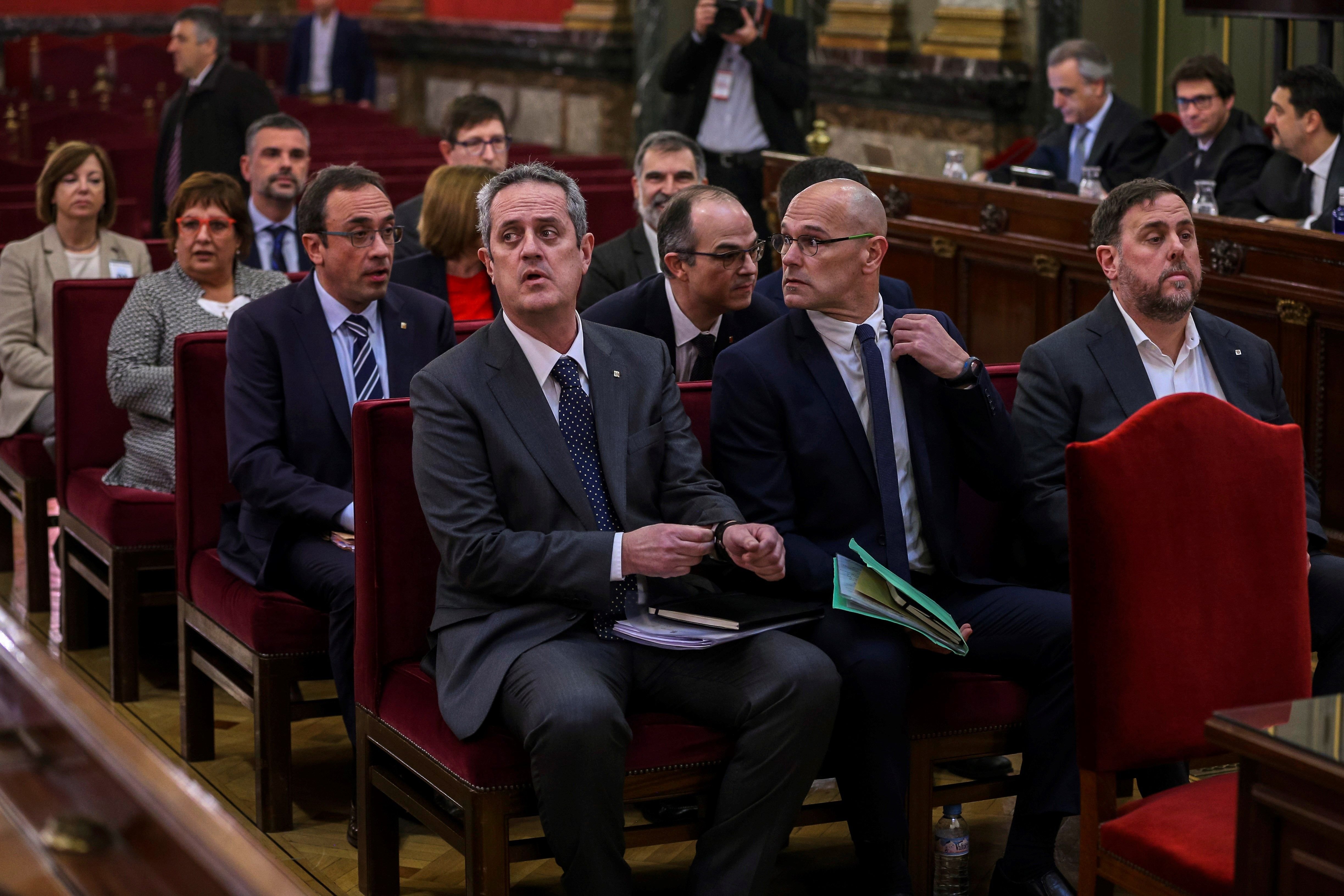Violation of the principle of legality in criminal law, violation of the right to liberty, violation of freedom of expression, violation of freedom of ideology, violation of the right to peaceful assembly, violation of the free exercise of representative public office, violation of the right to due process... A month after the release of the sentences against pro-independence Catalan leaders, a group of national and international observers have presented their final conclusions on the trial. The aim now is to present them to European and international bodies.
The platform International Trial Watch, which prepared the report, organised for a total of 62 observers, 34 of whom were from 17 different countries, to attend the case. The document is based on the platform's attendance of every hearing during the trial and an analysis of the sentence. "The Supreme Court's verdict and the sentences clearly violate the principle of legality", said Anaïs Franquesa, a member of the platform, adding that the "law has to be predictable".
Franquesa highlighted that, in the 500-page sentences, the judges "don't analyse what an uprising is, when that's at the heart of the definition of the charge". Instead, she said, it was substituted for large-scale civil disobedience. For example, on 20th September 2017 there were "large-scale gatherings" and on 1st October that year, a "symbolic vote in a legitimate exercise of fundamental liberties".
"By penally punishing the organisation of peaceful protests, the right to protest is clearly criminalised", she warned, indicating it has a "worrying dissuasive effect". Speaking at a press conference in Madrid, she said the verdict "violates fundamental rights which affect the whole population".
Belén Caballero, of the ALAA (Free Association of Lawyers), said that "a serious crime like sedition has been forced to fit with behaviours that mean exercising fundamental rights". Belgian lawyer Mireille Jourdan, meanwhile, noted that judge Manuel Marchena "rejected with disdain" reports from the UN Working Group on Arbitrary Detention.
“The facts had no effect outside of Catalonia, so they should have been tried in Catalonia. By judging them in the Supreme Court, the right to a double instance was denied. This affects the right to a fair trial” @SabataRobert president of AED and @ACDDH_pic.twitter.com/cZFjhJwwQH
— International Trial Watch (@InterTrialWatch) 14 de novembre de 2019
Robert Sabata, president of the organisation European Democratic Lawyers, also highlighted procedural considerations in the trial. He argued it should have been held in Catalonia and that by holding it in the Supreme Court their "right to appeal was denied". Similarly, he denounced the fact that "the right to contradict during cross-examination was, in practice, denied".
“One of the main violations, both formal and material, was carried out during the evidence. The right to contradict during cross examination was in practice denied” @SabataRobert from @AED_EDL and @ACDDH_pic.twitter.com/EbAOCZC9aH
— International Trial Watch (@InterTrialWatch) 14 de novembre de 2019
“I cannot understand how the exercise of demonstration can be charged with sedition and imprisonment between 9 and 13 years. Clearly this judgment is unfair and violates rights” Mireille Jordan, lawyer from Belgium and AED.pic.twitter.com/m3cxcfw6UX
— International Trial Watch (@InterTrialWatch) 14 de novembre de 2019

